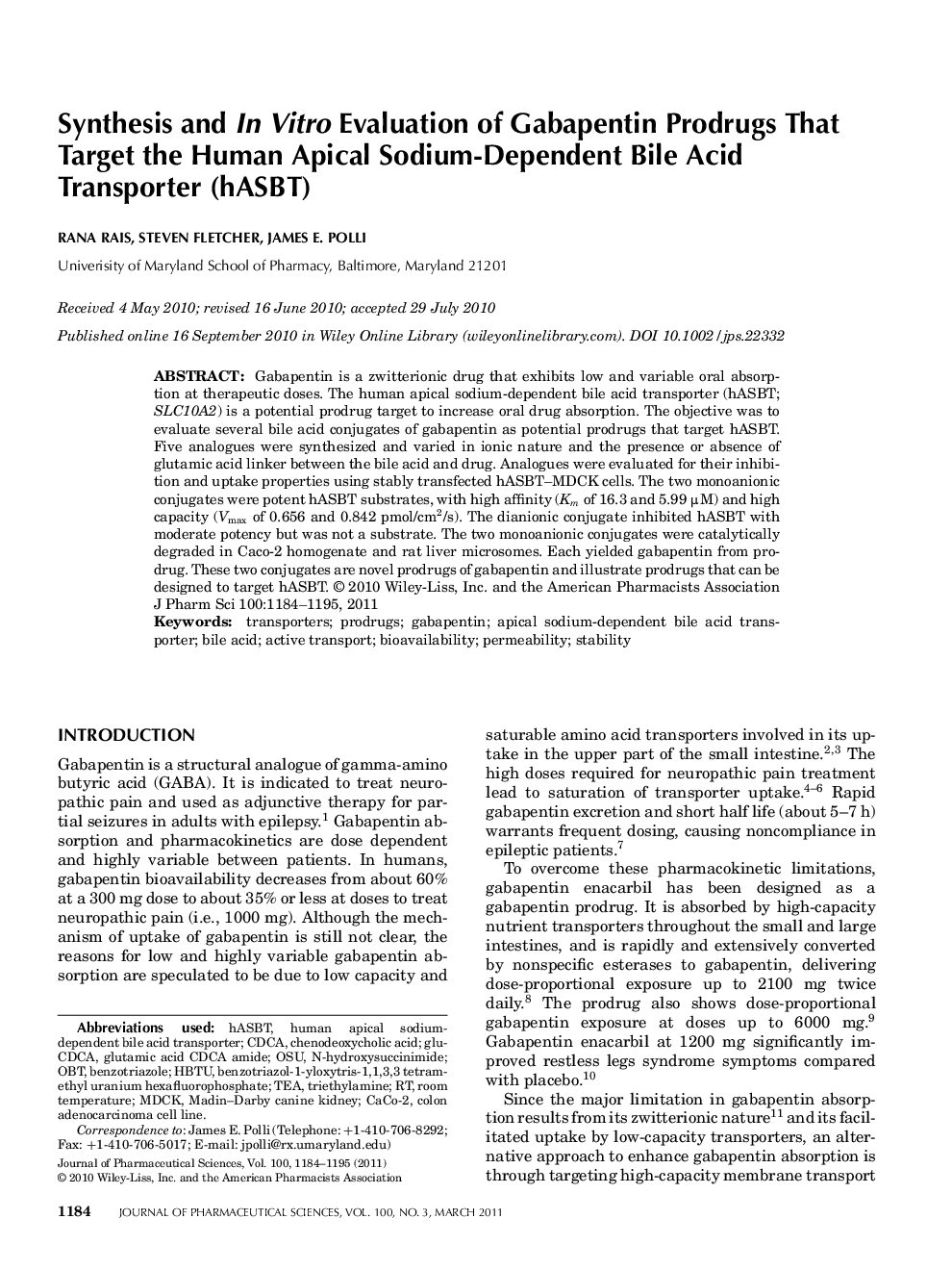| Article ID | Journal | Published Year | Pages | File Type |
|---|---|---|---|---|
| 2485831 | Journal of Pharmaceutical Sciences | 2011 | 12 Pages |
Abstract
Gabapentin is a zwitterionic drug that exhibits low and variable oral absorption at therapeutic doses. The human apical sodium-dependent bile acid transporter (hASBT; SLC10A2) is a potential prodrug target to increase oral drug absorption. The objective was to evaluate several bile acid conjugates of gabapentin as potential prodrugs that target hASBT. Five analogues were synthesized and varied in ionic nature and the presence or absence of glutamic acid linker between the bile acid and drug. Analogues were evaluated for their inhibition and uptake properties using stably transfected hASBT-MDCK cells. The two monoanionic conjugates were potent hASBT substrates, with high affinity (Km of 16.3 and 5.99 μM) and high capacity (Vmax of 0.656 and 0.842 pmol/cm2/s). The dianionic conjugate inhibited hASBT with moderate potency but was not a substrate. The two monoanionic conjugates were catalytically degraded in Caco-2 homogenate and rat liver microsomes. Each yielded gabapentin from prodrug. These two conjugates are novel prodrugs of gabapentin and illustrate prodrugs that can be designed to target hASBT.
Keywords
Related Topics
Health Sciences
Pharmacology, Toxicology and Pharmaceutical Science
Drug Discovery
Authors
Rana Rais, Steven Fletcher, James E. Polli,
